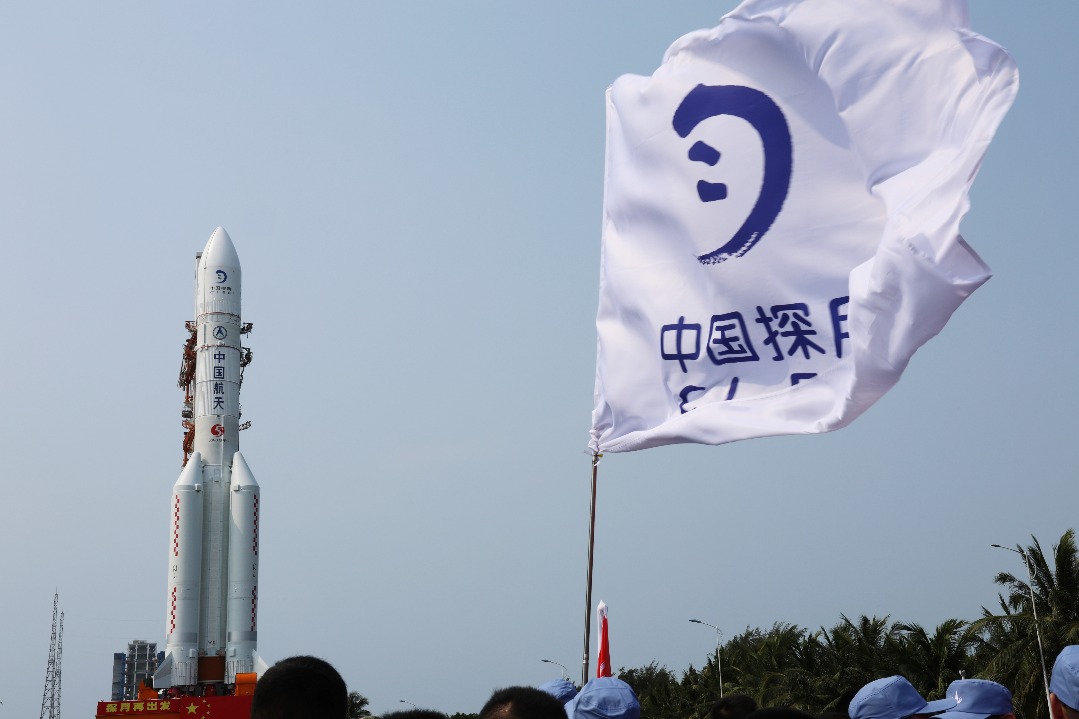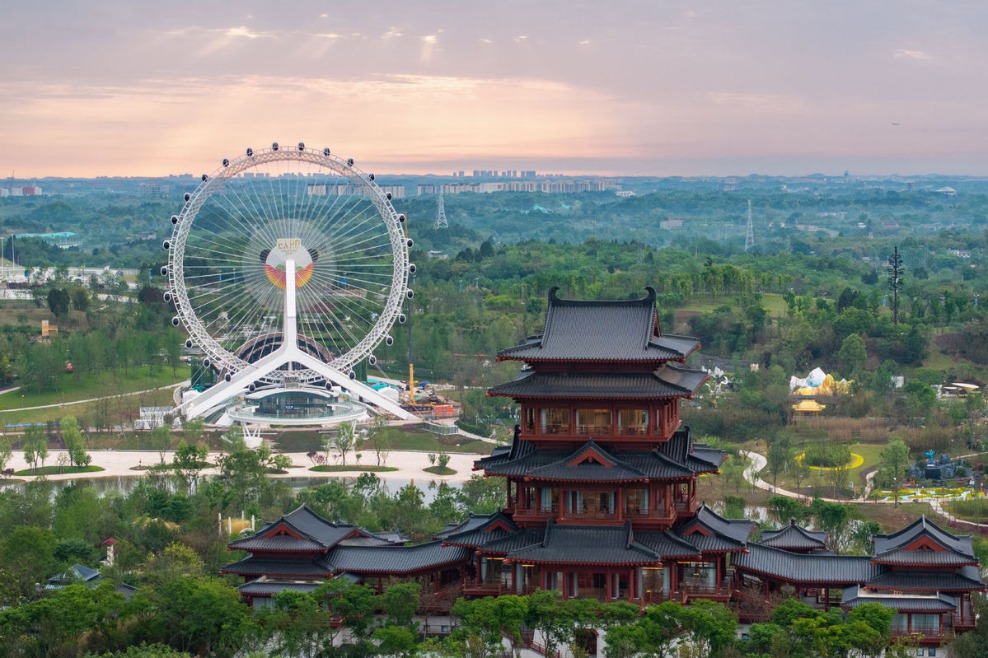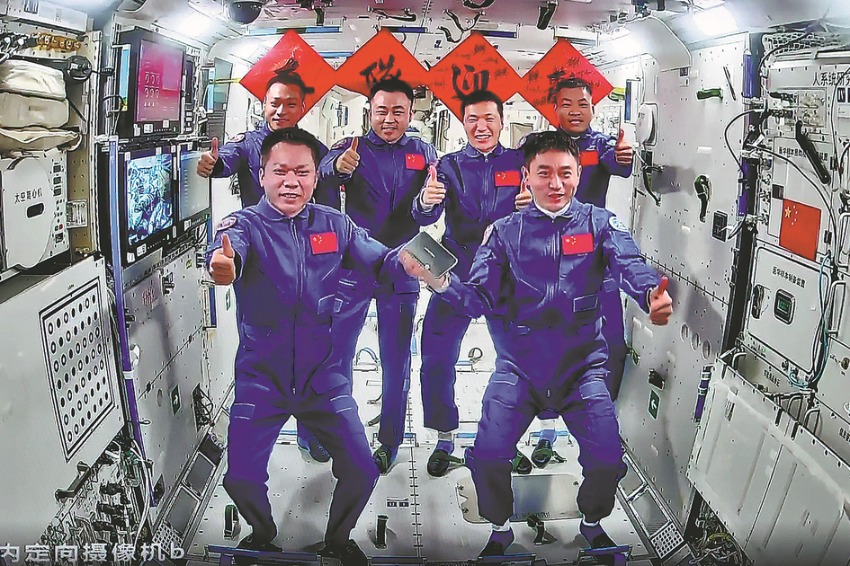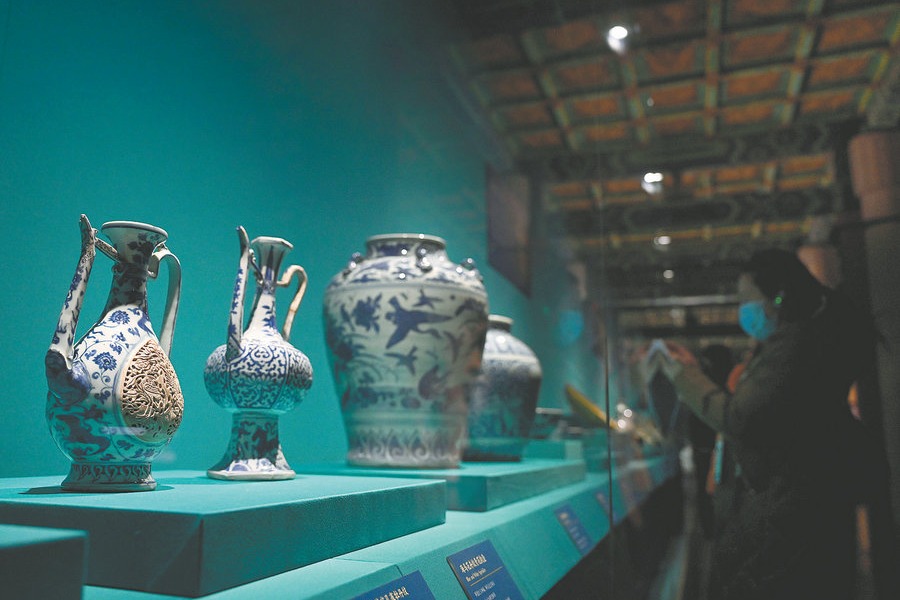Consolidated gains
Actively promoting the expansion and upgrading of the RCEP will enable its potential to be further tapped

Actively promoting the expansion and upgrading of the RCEP will enable its potential to be further tapped

Against the backdrop of the rise in anti-globalization sentiment and the sluggish global economic recovery, the implementation of the Regional Comprehensive Economic Partnership agreement is giving an effective boost to the economic development of its member countries and contributing to the prosperity and stability of the regional economy and global free trade.
The RCEP, through measures such as tariff reductions, cumulative rules of origin, trade facilitation and investment liberalization, and market access for the trade in services, has effectively enhanced economic development in the region.
With the RCEP agreement taking effect for the Philippines in June 2023, the pact entered a new phase of comprehensive development.
By integrating the free trade agreements among its member countries, the RCEP has successfully addressed the lack of such agreements between some member countries, making it a victory for "open regionalism". The RCEP is the world's largest and most promising free trade zone, covering 15 countries in the Asia-Pacific region and representing nearly 30 percent of the global population, GDP and total trade in goods.
According to estimates from the Peterson Institute for International Economics, a think tank based in Washington DC, the RCEP is expected to drive a 10.4 percent increase in member countries' exports, a 2.6 percent increase in outward foreign direct investment, and a 1.8 percent increase in GDP by 2025. The agreement is also expected to create a net increase of $519 billion in member countries' exports and a net increase of $186 billion in national income by 2030, when the share of the RCEP bloc in the global economy is expected to increase to 50 percent.
Since the signing of the RCEP agreement, China has taken the initiative to formulate action plans to align its systems with the RCEP, refine relevant policies and advance its high-level and institutional opening-up. It has fulfilled its tariff reduction commitments, improved its business environment, opened up markets to share opportunities, strengthened economic and trade cooperation with the RCEP member countries, and facilitated the comprehensive implementation of the RCEP.
According to China's General Administration of Customs, the country's total imports and exports with RCEP member countries reached 12.95 trillion yuan ($1.82 trillion) in 2022, up 7.5 percent year-on-year and accounting for 30.8 percent of its total foreign trade volume.
China has also applied to join the Comprehensive and Progressive Agreement for Trans-Pacific Partnership and the Digital Economy Partnership Agreement, promoting the alignment between the RCEP and higher international trade rules, and driving the high-level development of Asia-Pacific regional economic integration.
Currently, the sluggish global economic recovery, the rise of trade protectionism, the volatility in the financial markets and geopolitical risks have intensified the uncertainties and instability plaguing the global trade environment, which has increased the economic risks for countries worldwide, and raised higher requirements for the security of supply chains.
The trend of overstretching the concept of national security and de-risking is hindering economic globalization and international trade. Regional cooperation within the RCEP should be advanced to address the uncertainty in global economic development by fully leveraging the role of the RCEP in promoting global free trade.
In the context of the rising anti-globalization and protectionist sentiments, the implementation of the RCEP is a significant and positive development for global free trade. Accelerating the high-quality implementation of the RCEP can drive member countries to achieve higher levels of openness, enhance the depth and breadth of economic cooperation, jointly tackle global economic challenges, and provide vital support for the prosperity and development of global free trade.
Further strengthening cooperation in the digital economy, green economy, technological innovation, and other areas within the RCEP region can facilitate the establishment of an open economic system, and promote global economic globalization and greater economic integration within the Asia-Pacific region, achieving win-win and shared benefits for all parties.
Actively promoting the expansion and upgrading of the RCEP will deepen economic ties between regions, promote a more open and inclusive free trade network, and propel a new wave of global free trade progress.
Enhancing cooperation in value chains and supply chains within the RCEP region is a crucial guarantee to better cope with external risks and shocks. It is necessary to advance the division of labor and cooperation among the RCEP countries with different levels of economic development, so as to optimize the allocation of resources, drive the economic growth of all the RECP members, narrow development gaps, and achieve common prosperity and sustainable development.
Transformation and upgrading of industrial and trade structures should continue. Building on the cooperation in conventional industries, there should be more collaboration in areas such as high-tech, advanced manufacturing, and modern services. Promoting the establishment of RCEP industry alliances is also important to accelerate the transition from an expansion of quantity to a leap in quality.
Cooperation in digital transformation and technological innovation should be strengthened to build smart and digital supply chains, in order to adapt to new technological changes. Infrastructure and information channels should continue to be built to promote the interconnectivity of value chains and supply chains.
Enhancing the RCEP's core competitiveness and influence is a crucial driving force for the development of global free trade. The RCEP members should strengthen institutional development, including establishing a sound intellectual property protection mechanism, effective dispute settlement mechanism and a secretariat to improve the operation of the RCEP, as well as enhancing policy communication and coordination mechanisms among member countries. These measures are key to consolidating the sustainable and effective operation of the RCEP, and further improving the regional economic competitiveness and sustainable development.
It is also imperative to strengthen the capacity building and infrastructure development of the RCEP member countries; promote technological cooperation, innovation exchanges and knowledge sharing so as to enhance the technological and innovative capabilities of the member countries. Digital infrastructure is also necessary to facilitate liberal trade and investment, as is strengthened education and training cooperation to enhance workforce skills. These will raise the development capabilities of the RCEP member countries and ensure that countries at different levels of development can adapt to the changing world and benefit from it.
The author is a researcher at the World Economic Research Department at the China Center for International Economic Exchanges. The author contributed this article to China Watch, a think tank powered by China Daily.
Contact the editor at editor@chinawatch.cn


































